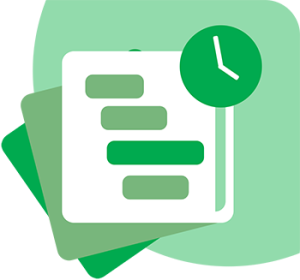Paying taxes on your side hustle?

With the growing focus on a money mindset, side hustles are also becoming more popular. A side hustle is an additional revenue stream that you set up in addition to your primary revenue stream. But what about taxes if you are already paying taxes on your primary income? Nikkie – co-founder of accounting solution Paperdork – wrote this article for you and explains. Read all about paying taxes on your side hustle here.
New to the world of side hustles and passive income? Then read this article first!
Are you an entrepreneur, or not?
First of all, it is important to check whether your side hustle will make you a business owner for the IRS. After all, that largely determines how you should handle the income from your side hustle.
Situation 1: you are already an entrepreneur
In that case, you can simply include the income from a side hustle with the other income you already have from your business. If you like to keep the income in your records separate, you can choose to apply for an additional trade name at the Chamber of Commerce, for example, and keep the accounts separate. Declarations are made by Chamber of Commerce number. That is, you thus bundle all income when filing a tax return. A side hustle in this case creates a higher profit, and on your profit you pay tax in your income tax.
Situation 2: you are not yet an entrepreneur
If you get your primary income from a salaried job then it is important to find out if you are considered an entrepreneur with your side hustle activities. And that goes beyond just whether you are registered with the Chamber of Commerce yes or no. If you are an entrepreneur then you have to file additional returns and also start paying VAT on your income.
When are you an entrepreneur?
But how do you know when you are an entrepreneur? Unfortunately, there is no hard limit for that. The Internal Revenue Service looks at a number of things. The most important thing to keep in mind here is that the Internal Revenue Service wants to make a distinction in when you’re doing something as a hobby, or when it’s just really business. You can ask yourself the following questions:
– Are you making a profit from your side hustle, and if so how much?
– Do you decide entirely independently how to set up your side hustle?
– Do you have enough capital to start your side hustle?
– Do you get income from different clients/clients?
– Are you running entrepreneurial risk? (not getting paid for illness etc.)
– Do you spend time finding new clients/clients?
The more of these questions you can answer “yes,” the more likely the IRS will see you as a business owner. To be on the safe side, you can do the entrepreneur check on the IRS website.
Entrepreneur for VAT but not for income tax purposes
It can also happen in some situations that you are an entrepreneur for VAT but not for income tax. A concrete example of this is the tiny house my friend and I have as an investment. We are entrepreneurs for VAT which means that we pay VAT on the rental of it, but the cottage itself is considered assets. We pay capital gains tax on the value of the cottage in that case, but we do not pay income tax on its income. So always double check that you are a business owner for both VAT and income tax purposes.
Result 1: you are not an entrepreneur
If the entrepreneur check shows that you are not an entrepreneur it does not mean that you do not have to pay taxes on the income from your side hustle. After all, you always pay taxes. But: your income tax return is a lot easier in this case. In this case, you enter your income from your side hustle(s) under “Box 1” and then the “income from other activities” section.
Result 2: You are an entrepreneur and earn less than €20,000 annually from your side hustle
You are an entrepreneur, and so you must register with the Chamber of Commerce. Because you earn less than €20,000 annually, you can take advantage of the Small Business Administration (KOR). The advantage of this is that you do not have to pay VAT on your income or file VAT returns. But, note ladies: there are also many drawbacks to the KOR. After all, you are also not allowed to reclaim VAT on the expenses you incur, and you are stuck with it for at least 3 years. Therefore, the maxim is that the KOR can be especially beneficial if your customers are primarily individuals. In addition, this does not mean that you no longer have to pay taxes at all. You still have to do (and pay) income tax as a business owner, and many entrepreneurs misjudge how complicated this is. So it is still wise to enlist the help of an accountant for this purpose.
Outcome 3: You are an entrepreneur and earn more than €20,000 annually from your side hustle
You are an entrepreneur in this case, which means you must register with the Chamber of Commerce. You have a full-fledged business in this case and must also file VAT returns and income tax as a business owner. Keep in mind that you probably won’t meet the hours criterion. As a result, you do not claim certain schemes and pay relatively high taxes. So set this aside so it doesn’t come as a surprise at the end of the year.
Note from Elfin
Becoming financially independent is wonderful, and side hustles can help you tremendously. What can greatly disrupt the process in this regard, however, is fumbling with the Internal Revenue Service. Don’t want to. Therefore, our advice would be: hire a good accountant. The hours you save can be used to make your side hustle rock hard 😉 Paperdork can help you with this. They nice on your taxes, you nice focus on becoming a money making machine!





